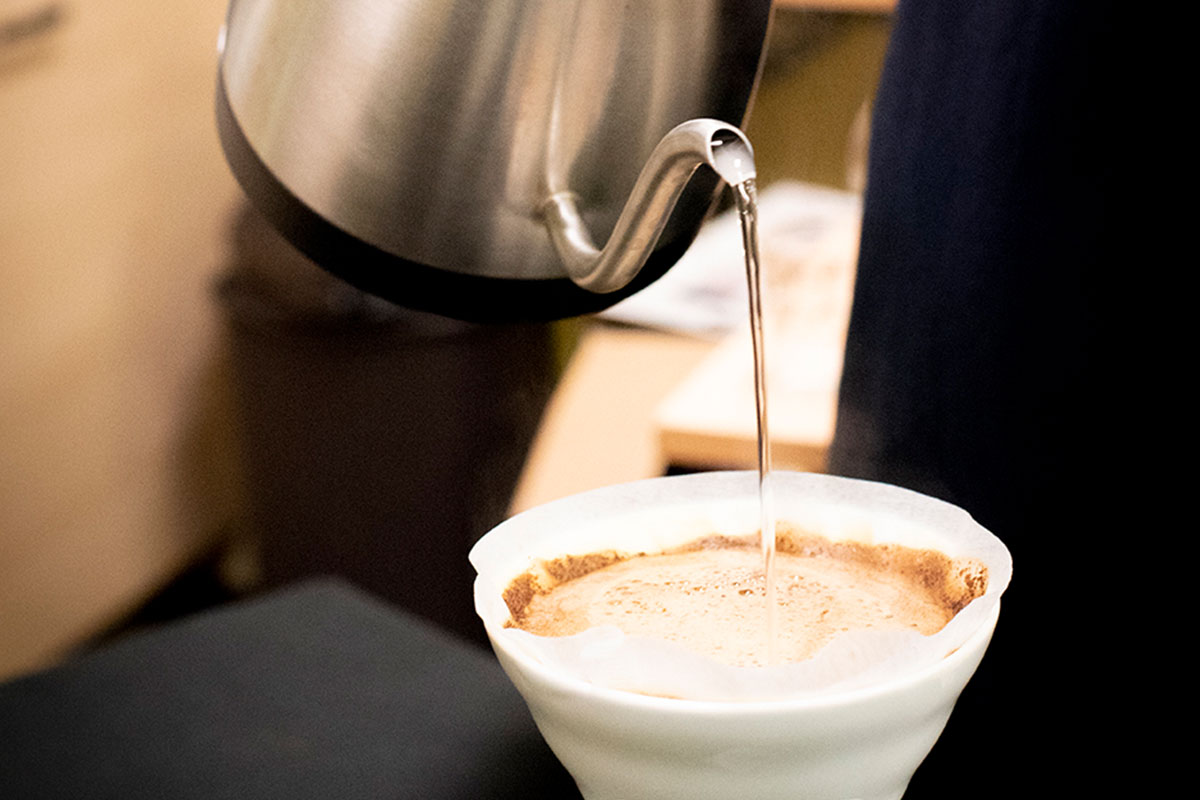
The barista from Salerno explains how creativity, experience, single-origin coffees and even coffee grinders can open the doors of a new relationship with specialty coffees.
 “I remember the first specialty coffee I served in my coffee shop: it was an Ethiopian coffee. A little emotional while doing so, I served the coffee to my customer who, immediately after drinking it, asked me for the price and after paying left by saying ‘this is the last coffee I drink here, it tastes awful. ‘After a few months he came back. I had time to explain to him what was inside that cup and why it was a special coffee. Today he comes twice a day “.
“I remember the first specialty coffee I served in my coffee shop: it was an Ethiopian coffee. A little emotional while doing so, I served the coffee to my customer who, immediately after drinking it, asked me for the price and after paying left by saying ‘this is the last coffee I drink here, it tastes awful. ‘After a few months he came back. I had time to explain to him what was inside that cup and why it was a special coffee. Today he comes twice a day “.
Behind every Specialty Coffee there is a story, tradition, aromas, flavors that you cannot do without after falling in love with them. It’s a coffee for curious people who want to discover more.
In order to do this, you need to meet professionals who can teach you how to appreciate all its peculiarities: a job which Michele Cantarella, a barista who works in the heart of Salerno and who has been specializing in the world of coffee for the past seven years.
Why did you enter the world of Specialty coffees?
I wanted to offer my clients something new. I concentrated on my training linked to the world of coffee which I discovered thanks to the experience at Espresso Academy. Since then, my goal is to transmit my enthusiasm about coffee to all those who visit my coffee shop showing them the differences between good quality coffee and the one we (unfortunately) still drink in many italian coffee shops.
We know well that easing customers into the acidity and peculiarities of specialty coffees is not easy. What strategies do you use to explain them to your customers?
The approach is not to scare the common customer. In order to taste an unconventional coffee, you certainly need a bit of curiosity: this can be done with an intuitive menu, where coffees can perhaps be combined to flavors that people already know, to create greater familiarity. The idea is to try a sensory experience, perhaps by making an approach in small steps, first by offering a coffee blend and maybe the next time, a specialty coffee.
When we talk about specialty coffees we refer to a very broad spectrum. How many high-level coffees do you offer in your coffee shop? And which ones do your customers prefer?
I have six coffees: two specialties, two Arabica blends and two single Robusta origins. I juggle every day between six different coffee grinders!
The coffee that is most appreciated lately is our China MENG MENG. It’s a very special coffee, with a mix of tropical fruit (mango, pineapple), sweet and delicate yellow fruit aroma and hints of green tea in the aftertaste. Also herbal teas lovers really appreciate this coffee!
As an experienced barista, you certainly have a great overview of this industry. What future do you see for Specialty coffees?
The growth of consumer requests for these coffees in Italy is a cultural issue, as has happened for wine and cooking. I think it will definitely spread out more to gourmet coffee shops or restaurants with Michelin Stars, where people like to have a special, out of the ordinary, experience. We just need to know how to catch their desire for new experiences while being ready to serve them our fabulous coffees!

